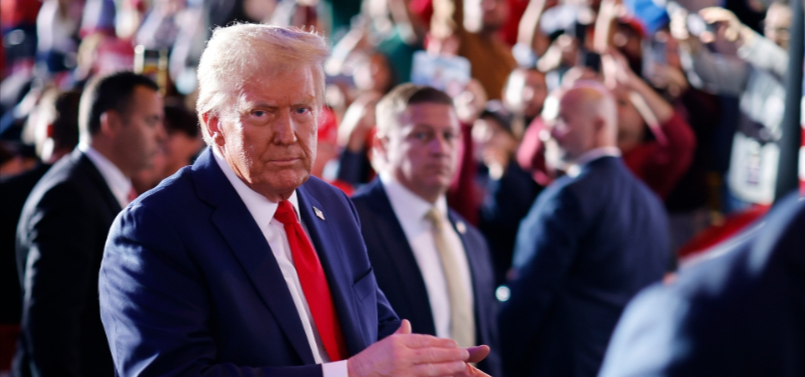Trump Picks Head Of His Secret Service Detail To Be Agency Director

President-elect Donald Trump is expected to appoint Secret Service agent Sean Curran, who currently oversees his security detail, as the agency’s new director, according to three sources from within the Secret Service.
Curran, a veteran of the Secret Service with over 20 years of experience, leads a team of approximately 85 agents assigned to protect the president-elect. He has been in this role for the past two and a half years, managing Trump’s security throughout his presidential campaign.
RealClearWire reports that Curran has built the strongest rapport with Trump among all current agents. Positioned within the innermost circle of Trump’s security team, he plays a critical role in safeguarding the incoming president daily.
Curran was notably one of the first agents to shield Trump during an assassination attempt at a rally in Butler, Pennsylvania. The iconic photograph of Trump—injured, blood-stained, and raising his fist in defiance—features Curran and other agents alongside the American flag in the background, the outlet noted.
Trump’s selection of Secret Service director is particularly significant, given the two assassination attempts against him in the final months of his campaign.
One factor favoring Curran is his persistent advocacy for increased security resources during Trump’s campaign. Despite resistance from senior Secret Service leadership, Curran consistently pushed for enhanced measures, as documented in communications from the Office of Protective Operations, according to Secret Service sources cited by RealClearWire.
Former Secret Service Director Kimberly Cheatle, along with Acting Director Ron Rowe and other senior officials, followed existing protocols treating Trump like a former president, thereby not providing him the highest security level, even after assassination attempts.
As one of the most recognizable and polarizing political figures, Trump’s circumstances defied conventional assumptions for protecting former presidents. Reports indicated that by maintaining outdated security protocols, the agency neglected its own threat-based standards, leaving gaps in Trump’s security detail.
Investigations revealed that if additional resources, such as counter-snipers and a Counter Surveillance Unit, had been allocated, the Butler, Pennsylvania, shooter Thomas Crooks might have been identified and neutralized before acting.
Curran’s leadership is widely respected within the Secret Service, but some critics point to his limited managerial experience. They argue he will need to shift from operational roles to a more assertive leadership style to implement necessary reforms and restructure the agency.
Curran was a senior figure on Trump’s security detail during two high-profile assassination attempts. In one incident, Trump was shot in the ear and narrowly escaped fatal injury—a scenario drawing comparisons to the 1981 attack on President Reagan by John Hinckley.
In another instance outside Trump’s West Palm Beach Golf Club, Ryan Routh, the assailant, went undetected for over 12 hours while lying in wait with a rifle. The threat was only discovered when a Secret Service agent stationed on the course noticed the barrel of a weapon protruding through the fencing.
Despite his personal trust in Curran, Trump’s anticipated decision goes against the recommendations of two prominent review panels: the 2015 bipartisan Independent Review Panel and another from last year. Both advised that the next Secret Service director should come from outside the agency to spearhead meaningful reforms endorsed by Congress.